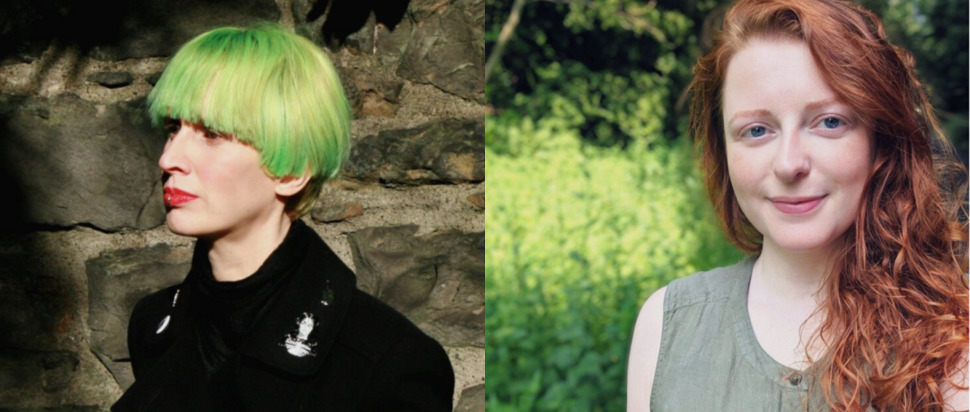Inklusion: the kickass guide to literary accessibility
Ever Dundas and Julie Farrell introduce Inklusion, a project aiming to innovate access in the literature sector, and make a kickass guide to making events accessible for disabled people
Inklusion is setting out to create a comprehensive events access guide for UK-based literature organisations. Speaking with its founders, Ever Dundas and Julie Farrell, they share how the idea for Inklusion was sparked several years ago, while the pair were exchanging lived experience stories of a lack of inclusivity in the literary sector. When the COVID-19 pandemic hit, and their busy schedules were given room to breathe – both Farrell and Dundas are writers and activists, with a plethora of awards, short-listings and long-listings, and publications between them – the project gained in momentum.
"The pandemic definitely spurred this on, because there were changes that were made on behalf of non-disabled people that disabled people had been asking for, and were told it just wasn’t possible," Dundas says.
"We come at this with as much of a positive, helpful attitude as possible," Farrell adds. "We really are there to help, advise, and educate people about best practice across various disabilities. But it does come from a place of feeling completely ostracised and not included." The writers mention ‘the Rage’ – the capital ‘R’ very much inferred – at being excluded from so much that their non-disabled industry peers are included in.
Currently, Inklusion is in the process of fundraising for the costs of creating its forthcoming access guide, which will be made freely available as a PDF and printed book. So far, it’s received £4,000 in funding from the Edinburgh International Book Festival, but still have a way to go to meet its target of £18,574. Part of those funds will go to researching the project as fully inclusive as possible, to encapsulate all kinds of disabilities, and to include writers from all demographics. Building on their own lived experiences, Dundas and Farrell will work with disabled writers from diverse backgrounds to inform the guide as inclusively as possible.
"We’re going to consult with disabled people, and we’re going to pay them for their time," Dundas says. "That’s really important – that’s another problem with the industry, people don’t expect to pay marginalised people for their advice and input. As well as them being experts, it’s also emotional labour, and we think it’s really important they get paid for their time." It’s clear that the ethos behind the guide’s research – its inclusive reach and commitment to fair pay – is firmly embedded even at this early stage.
One research partner is Cat Mitchell, Lecturer in Writing and Publishing at the University of Derby. She recently announced the outcomes of her research project in disability in publishing, which drew from the experiences of a wide pool of disabled people, all working and freelancing within the publishing industry. The project’s findings were, unsurprisingly, damning, and – as Farrell goes on to say – have a great deal of crossover with the research Inklusion is undertaking. Access provisions at events aren’t so dissimilar from access requirements in the workplace, and the two teams will use their shared research to look at those requirements and implement them within Inklusion’s guide.
Dundas and Farrell will also be researching alongside and in partnership with literary organisations across the UK. "We’ll be consulting with various organisations across the industry too," Dundas explains. "We want to ask them what provision they already have in place, what they want to provide, and what they need help with. That’s a very important part of it, because the guide is to help organisations to deliver best practice, so we need to know what their needs are."
The feedback from the launch of the project has been incredibly positive, with authors such as Val McDermid and David Bishop giving statements of support and encouragement.
"When we launched it was really heartwarming. Everyone’s response to it on social media, everybody messaging us – it was just really lovely," Dundas smiles. "And also, people are putting their action where their lip service is, and we’ve had donations from organisations including the National Centre for Writing, as well as support from WriteMentor."
There are so many more exciting developments lined up for Inklusion, some of which will be announced in the coming weeks and months. For now, though, Dundas and Farrell are pulling together supportive organisations, publishers, writers, and other industry professionals to gather the support needed for to make the Inklusion guide a reality.
"If people want to support us," Farrell encourages, "the best thing an individual can do is to interview us, or write a blog post about the work, or tweet us (@InklusionGuide) and share our information, or give us an email on hello@inklusionguide.org"
Dundas and Farrell are such warm, knowledgeable and empathetic activists to speak with, and this is such a necessary project. Let us – as a sector – support them however we can to create this long overdue, comprehensive accessibility guide that is so desperately needed for the UK literary world.
Learn more about Inklusion at inklusionguide.org
